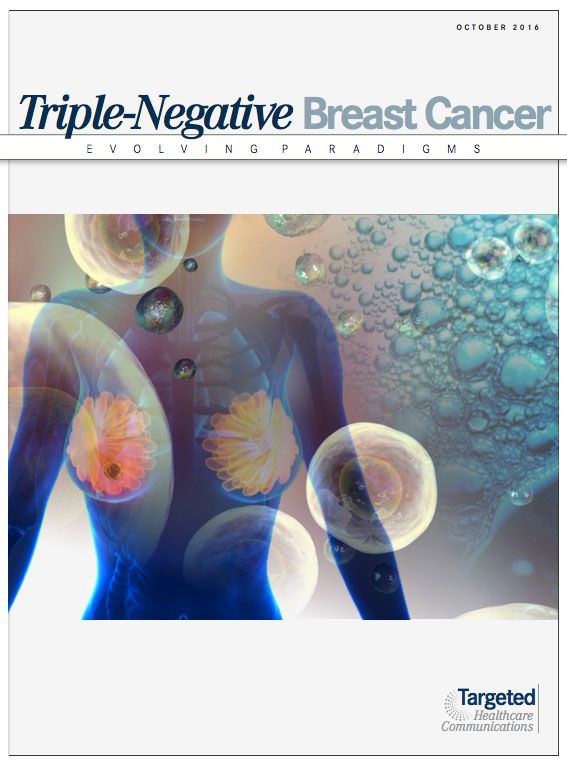Evolving Paradigms in Triple-Negative Breast Cancer: Conclusion
The treatment of TNBC continues to be a challenge for physicians because of its limited treatment options, the dearth of approved targeted therapies, high mortality, and poor prognosis.
This article is part I of a series. View parts II and III:Evolving Paradigms in Triple-Negative Breast Cancer> >
The treatment of TNBC continues to be a challenge for physicians because of its limited treatment options, the dearth of approved targeted therapies, high mortality, and poor prognosis. Patients and physicians are limited to chemotherapy that targets DNA repair complexes,p53, and cell proliferation by using anthracyclinebased, platinum-based, and taxane-based treatment regimens.1However, research into targeted therapies for TNBC is robust. Further understanding of gene expression in breast cancer has led to classifications in TNBC that may help guide research into targeted therapies.16The ultimate goal is to develop personalized, targeted treatments for TNBC. However, this requires a deep understanding of the interaction of the immune system, oncogenic pathways, and the microenvironments of the tumor.80 Understanding the etiology and ultimately prevention of TNBC requires further research using population-based studies.5
New research and the potential for targeted, personalized treatment in TNBC allow room for some optimism. However, because TNBC represents a subset of breast cancer, this requires collaboration in trials and research in order to address TNBC on a large scale.91
Click here for references:Evolving Paradigms in Triple-Negative Breast Cancer: References> >
